
Today, in Culley v. Marshall, the Supreme Court reached a dubious decision in an asset forfeiture property rights case, holding that the seizure of property through civil forfeiture requires a "timely hearing," it does not require "a separate preliminary hearing to determine whether the police may retain the car pending the forfeiture hearing." The justices split 6-3 along ideological lines. However, a concurring opinion by Justice Neil Gorsuch (joined by Justice Clarence Thomas) suggests there may be a majority in favor of a more fundamental challenge to the abusive asset forfeiture regimes that exist in many states.
Civil asset forfeiture enables the government to seize property that has allegedly been used in the commission of a crime, even if the owner has never been charged or convicted of anything. In many states, including Alabama (whose policies are at issue in Culley), law enforcement can then hold on to the property for many months before the owner is allowed to contest the seizure. Moreover, many states allow law enforcement to keep the proceeds from seized property, thereby creating an incentive to take as much as possible. Culley involves two Alabama cases where the owners of cars were subject to asset forfeitures as a result of the use of the vehicles by other people to conduct illegal drug transactions. The owners eventually managed to prevail in state court. But that process took many months. In the meantime, they were deprived of their vehicles, without any compensation.
Critics have long argued that such practices violate the Due Process Clauses of the Fifth and Fourteenth Amendments, which bar the government from depriving "any person of life, liberty, or property, without due process of law." If the police can seize property and hold on to it for months on end without any meaningful process at all, that surely is not "due process of law."
In an opinion written by Justice Brett Kavanaugh, the Supreme Court nonetheless ruled that a separate "preliminary hearing" is not required in such cases, for two reasons. First, they contend the issue was resolved in two earlier Supreme Court precedents:
Ultimately, we need not reweigh the competing due process arguments advanced by the parties because this Court's decisions in United States v. $8,850, 461 U. S. 555 (1983), and United States v. Von Neumann, 474 U. S. 242 (1986), already resolved the issue. After a State seizes and seeks civil forfeiture of personal property, due process requires a timely forfeiture hearing but does not require a separate preliminary hearing….
The dispute in $8,850 arose when the Customs Service seized currency from an individual entering the United States, but then waited before filing for civil forfeiture of the currency…. The property owner argued that the delay violated due process….This Court concluded that a post-seizure delay "may become so prolonged that the dispossessed property owner has been deprived of a meaningful hearing at a meaningfultime." Id., at 562–563. The Court elaborated that timeliness in civil forfeiture cases must be assessed by "analog[izing] . . . to a defendant's right to a speedy trial" and considering four factors: the length of the delay, the reason for the delay, whether the property owner asserted his rights, and whether the delay was prejudicial. Id., at 564… Those factors are appropriate guides in the civil forfeiture context, the Court explained, because the factors ensure that "the flexible requirements of due process have been met…."
In Von Neumann, the Court addressed whether a timely forfeiture hearing, without more, provides the process that is due in civil forfeiture cases. See 474 U. S., at 249–251. The property owner there failed to declare the purchase of his new car upon driving it into the United States. See id.,at 245. A customs official determined that the car was subject to civil forfeiture and seized it. See ibid. The plaintiff filed a petition for remission of the forfeiture—in essence, a request under federal law that the Federal Government exercise its discretion to forgive the forfeiture. See id., at 245–246. The Government did not respond to that petition for 36 days. See id., at 246. The plaintiff sued, arguing that the Government's 36-day delay in answering the remission petition violated due process…. Justice Brennan's opinion for the Court broadly held that due process did not require a pre-forfeiture-hearing remission procedure in the first place….
This Court's decisions in $8,850 and Von Neumann resolve this case. As the Court stated in Von Neumann, a timely forfeiture hearing "satisfies any due process right"
with respect to a "car" that has been seized for civil forfeiture. 474 U. S., at 251; see also id., at 249. The Due Process Clause does not require a separate preliminary
hearing.
The second reason why the majority rejects the need for a pre-forfeiture hearing is the originalist argument that Founding-era evidence suggests it wasn't required:
Historical practice reinforces the holdings of $8,850 and Von Neumann that due process does not require preliminary hearings in civil forfeiture cases. Since the Founding era, statutes have authorized the Government to seize personal property and hold it pending a forfeiture hearing, without a separate preliminary hearing. For example, the first federal forfeiture law, the Collection Act of 1789, authorized the civil forfeiture of ships, goods, and merchandise involved in suspected violations of the customs laws…. The collector then filed a forfeiture action, which a court would "hear and determine . . . according to law." §36, id., at 47. While that action was pending, the seized property could remain in the custody of the collector." §25, id., at 43.…
The Collection Act did not require a separate preliminary hearing before the forfeiture hearing. Rather, the forfeiture "trial" supplied the opportunity for the property owner to challenge the collector's case.
In a forceful concurring opinion that reads more like a dissent, Justice Gorsuch outlines serious due process flaws in the current asset forfeiture regime, and in the process undermines the majorities arguments. Like Justice Sotomayor in her dissent for the three liberal justices, Gorsuch emphasizes the abusive practices of the modern asset forfeiture regime, and the fact that most of it is of relatively recent origin, arising from the growth of the War on Drugs. This puts it in serious tension with text and original meaning:
To my mind, the due process questions surrounding these relatively new civil forfeiture practices are many. Start with the most fundamental one. The Fifth and Fourteenth
Amendments guarantee that no government in this country may take "life, liberty, or property, without due process of law." As originally understood, this promise usually meant that a government seeking to deprive an individual of her property could do so only after a trial before a jury in which it (not the individual) bore the burden of proof. See, e.g., 1 W. Blackstone, Commentaries on the Laws of England 134– 135 (1765) (Blackstone); Vanhorne's Lessee v. Dorrance, 2 Dall. 304, 315 (CC Pa. 1795) (Patterson, J.); Wilkinson v. Leland, 2 Pet. 627, 657 (1829) (Story, J.). So how is it that, in civil forfeiture, the government may confiscate property first and provide process later?The answer, if there is one, turns on history. If, as a rule, the Due Process Clauses require governments to conduct a trial before taking property, some exceptions are just asdeeply rooted. And for just that reason, these exceptions, too, may be consistent with the original meaning of the Fifth and Fourteenth Amendments.
Gorsuch goes on to note that the Founding-era and Supreme Court precedents cited by the majority may not be generally applicable, because they arose in " the discrete arenas of admiralty, customs, and revenue law." That's true of the Collections Act, and also of $8850 and Von Neumann, the two modern precedents emphasized by Kavanaugh. But, as Gorsuch points out, these areas are likely to be special cases, exceptions to the general rule that the government may only seize property after a trial:
The reasons for the law's traditionally permissive attitude toward civil forfeiture in those three contexts may merit exploration, too. From a brief look, it seems they were
sometimes justified for reasons particular to their fields. In the early Republic, for example, once a ship involved in violations of the Nation's piracy or customs laws slipped port for a foreign destination, American courts often could not exercise jurisdiction over it or its crew, let alone its owners…. In many instances, the law recognized that seizing the ship, subject to postdeprivation procedures, represented "the only adequate means of suppressing the offence or wrong, or insuring an indemnity to the injured party." Harmony v. United States, 2 How. 210, 233 (1844) (Story, J.); see also 3 Blackstone 262 (1768) (justifying civil forfeiture in customs cases as necessary "to secure such forfeited goods for the public use, though the offender himself had escaped the reach of justice"). But if history sanctions that line of thinking, it's hard not to wonder: How does any of that support the use of civil forfeiture in so many cases today, where the government can secure personal jurisdiction over the wrongdoer? And where seizing his property is not the only adequate means of addressing his offense?
How indeed?
Notice that Gorsuch's reasoning effectively disposes of both of the main arguments advanced by the majority: $8850 and Von Neumann are not dispositive precedents, because both were customs cases, which are a special, distinct situation. For the same reason, the Founding-era evidence cited by Kavanaugh is also inadequate. It too focuses on customs legislation.
More generally, if Gorsuch is right to conclude that "a government seeking to deprive an individual of her property could do so only after a trial before a jury in which it (not the individual) bore the burden of proof," then the Alabama laws at issue in this case are clearly unconstitutional! A procedure under which the government can seize and hold on to property for many months before providing any kind of hearing clearly doesn't meet that standard. Ditto for the way in which Alabama (like many other states) effectively shifts the burden of proof onto the property owner.
Thus, by their own reasoning, Gorsuch and Thomas should have dissented. Even if a "separate preliminary hearing" isn't required, the government still may not seize property without holding a trial first, and a procedure that, as Gorsuch puts it, allows "it take and keep private property without a warrant or any other form of prior process" is clearly unconstitutional, and violates the requirement of a "timely" hearing.
Justice Sotomayor's dissenting opinion offers additional constitutional criticisms of the Alabama asset forfeiture system, and others like it. Like Gorsuch, she also highlights the perverse incentives created by the current system (which allows law enforcement to profit from seizures), ways in which that system disproportionately burdens the poor and disadvantaged, including property owners who don't have the resources for a prolonged legal battle. Losing the use of your car for many months may be only a moderate burden for the relatively affluent. It's a much bigger one for a poor or working class person. She also points out additional flaws in the majority's use of precedent.
From the standpoint of civil libertarians and property rights advocates, there is a silver lining to today's otherwise terrible decision: at least five justices seem open to issuing a broader ruling curbing asset forfeiture. In his concurring opinion, Gorsuch comes close to inviting litigants to file a broad challenge arguing that most asset forfeitures require a prior jury trial:
Why does a Nation so jealous of its liberties tolerate expansive new civil forfeiture practices that have "led to egregious and well-chronicled abuses"? Leonard, 580 U. S., at 1180 (statement of THOMAS, J.). Perhaps it has something to do with the relative lack of power of those on whom the system preys. Perhaps government agencies' increasing dependence on forfeiture as a source of revenue is an important piece of the puzzle…. But maybe, too, part of the reason lies closer to home. In this Nation, the right to a jury trial before the government may take life, liberty, or property has always been the rule. Yes, some exceptions exist. But perhaps it is past time for this Court to examine more fully whether and to what degree contemporary civil forfeiture practices align with that rule and those exceptions.
If Justice Sotomayor's dissent is any indication, the three liberal justices also seem open to a broader attack on at least the more egregious current asset forfeiture practices, prevalent in many states. Defense lawyers and public interest organizations should take note—and take up Gorsuch's thinly veiled invitation. Victory may yet be snatched from the jaws of today's defeat.

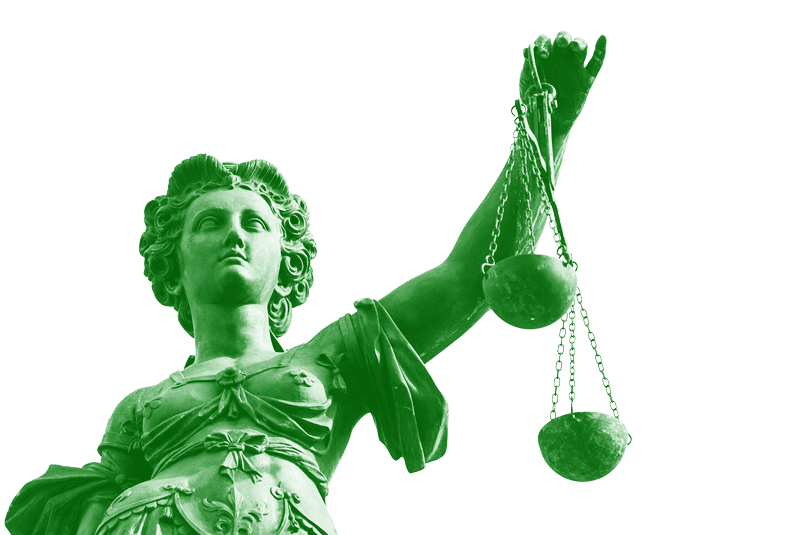
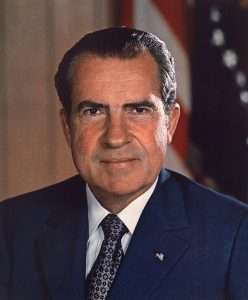
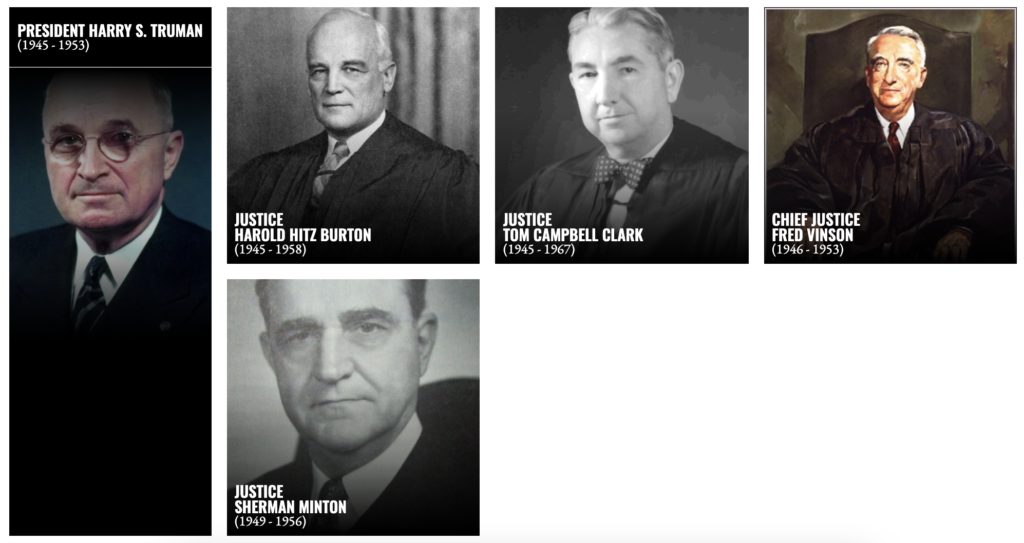
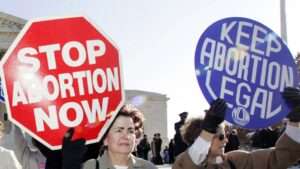
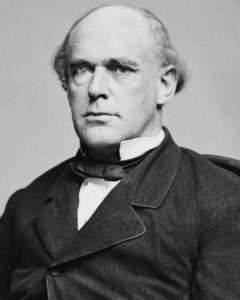
Show Comments (2)